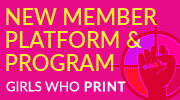Today, it is not uncommon to hear predictions that the names of the great publishing houses will soon fall from the covers of books to the footnotes of self-published history tomes. Casual observers could be forgiven for thinking this way based on headlines on the e-reading revolution.
First, Amazon announced that its e-book sales topped its hardcover sales for the first time. Then, in August, the Washington Post Co. sold iconic Newsweek amid questions about the future of weekly magazines. And just recently, this newspaper launched a ” major organizational restructuring” as part of a continued shift from newsprint toward more digital platforms.
While this tide of headlines speaks to the sea change sweeping the publishing world, the industry itself is anything but washed out. In fact, many parts of the industry are thriving in the digital age.
Nowhere is this clearer than in the success of the e-book. The Association of American Publishers recently reported that e-book sales for the first half of the year were up more than 200%. Far from being the end of the publishing industry, this number is a sign of a new beginning.
Why is there such a gap between the perception of a dying industry and the reality of a rapidly adapting one? It begins with five common myths about publishing:
Continues at: Will technology kill book publishing? Not even close – USATODAY.com.
Related articles by Zemanta
- Publishers’ crazy e-book prices (salon.com)
- Ebook technologies and their impact on information provision by Piotr Kowalczyk (teleread.com)
- Publishers Weekly panel provokes e-royalty discussion (teleread.com)











